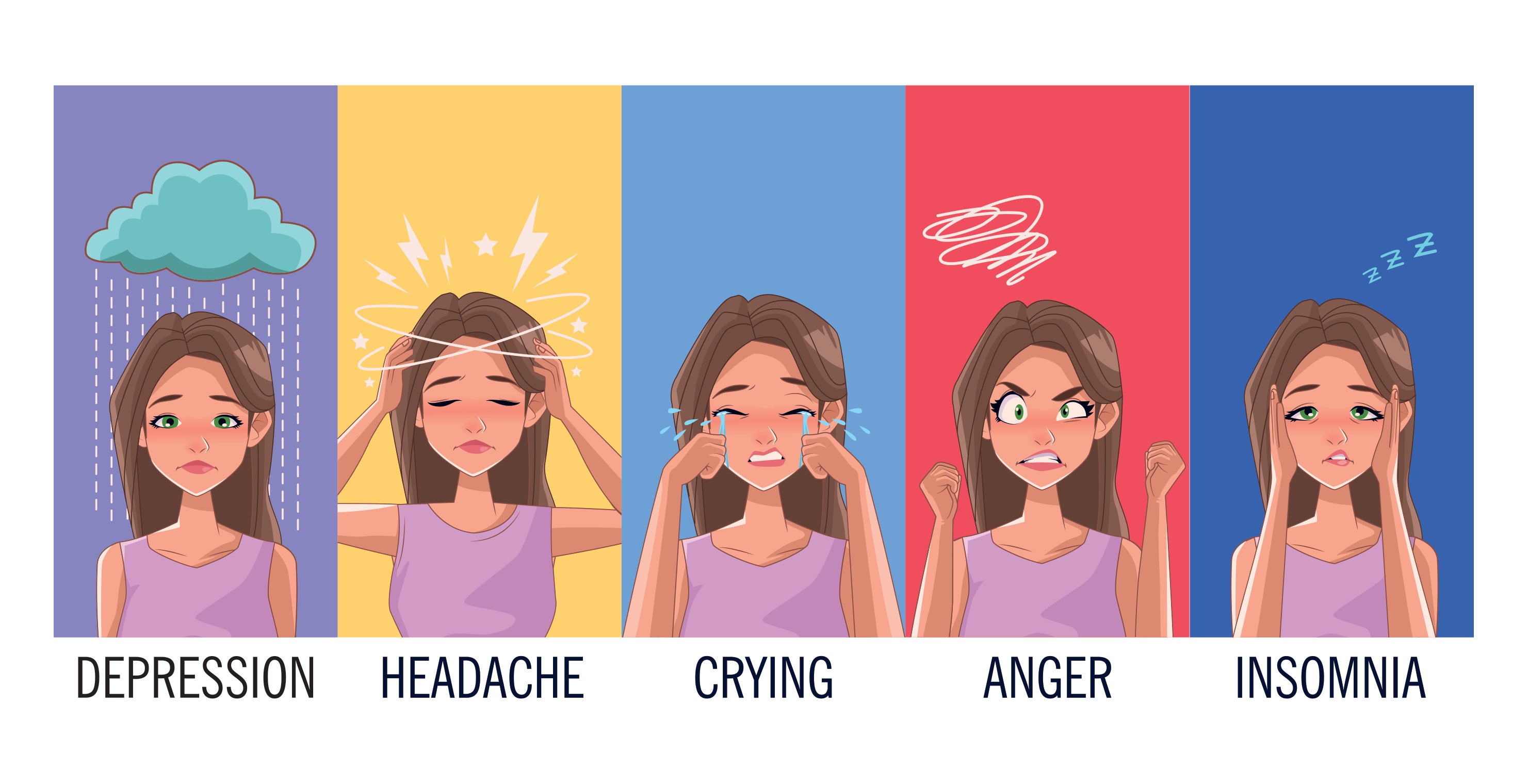It is easy, in most cases, to describe an illness or injury when you feel pain or discomfort. You can point to the part of your body that hurts. Or it can be obvious, such as a runny nose. Then, a medical professional can translate that information, make a diagnosis, and prescribe a course of action, be it medical or otherwise.
Perhaps you are suffering from a cold? Your practitioner might prescribe a course of antibiotics. Maybe your back aches from spending too much time at your desk. Your doctor might advise you to get up and move around more.
It is not easy, however, and can be very difficult, to recognize issues caused by stress, such as work-related stress. In many cases, those affected by stress may struggle to understand or acknowledge that they may need help and support, or even to recognize that they are feeling unwell.
It is not just a question of “toughening up,” “sucking it up,” or “just dealing with it,” as we are sometimes told. In a large number of cases, those silently suffering from stress will find its effects extremely debilitating; perhaps sleepless nights, irritability, panic attacks, or loss of appetite. In turn, these symptoms are likely to affect our productivity and limit our success at work. More importantly, our family and friends may unwittingly be caught in the cross-fire as stress-related emotions bubble to the surface with no meaningful outlet for release.

General public awareness around mental health has come to the fore in recent years, as has the importance of looking after your state of mind on a regular basis. Many large multinational corporations and professional services firms increasingly understand the important role mental health plays in the workplace and how it can restrain productivity. Corporate “wellness” has become a focus. However, while there are positive signs that times are changing when it comes to approaching stress at a corporate level, more attention is needed toward acknowledging that stress is normal and needs to be recognized, helped, and supported, for a workforce to be productive and to prosper.
Mindfulness is a centuries-old practice
Wellness and “mindfulness” are popular buzzwords. Morning television shows and the pages of glossy lifestyle magazines are filled with articles on mental “self-improvement” in some form or other. This is both good and bad.
Mindfulness, or “mental training,” is not a new concept. It has been around for centuries, with roots in ancient Buddhist teachings. What is new is that mindfulness practices, which help individuals look after their mental wellbeing, are increasingly being viewed as “trendy.”
Many of us have friends who practice the current stress relief technique or perhaps swear by mindfulness retreats. Such fads can make it seem as if those significantly suffering from stress can make it vanish by simply attending a spa weekend. This is not the case, and the journey to begin correcting these issues can be long and hard. Having said that, if increasing popularity and mainstream consciousness raise awareness and encourage people to address their mental health issues, then the trend clearly has some positive impact.
It's personal
Awareness of our own mental health and what we do to maintain it is a deeply personal matter. Building mental health practices into our lives should be determined by what best suits the needs of the individual, not what we think we should be doing based on something we saw on television or read about on Instagram.
The practices and habits we ultimately choose should complement our work schedules and personal time, not consume them. Perhaps a colleague at the water cooler has told you how great the latest mindfulness app is? Good for them, but your issues may be more severe and require more professional guidance.
Have you read an article in the Sunday newspaper supplements about breathing exercises under a cold shower? Again, this may be beneficial, but unlikely to make the stresses of work disappear overnight. And it will not resolve the underlying cause of more serious issues.
Make it a habit
As with all successful habits, trying to do too much too quickly will inevitably result in failure. Habits need to be formed and managed; the moment we take on too much, the less likely we are to persevere with those new habits. We can become frustrated and stressed that our new habits aren’t a quick fix or cure-all. It can become a vicious, destructive cycle.
A high-risk profession
As lawyers — highly motivated, professionally trained, and driven individuals — we are acutely exposed to the pressures of stress. In many cases, we are often our own worst enemy, constantly questioning our own abilities, comparing ourselves to others, perhaps concerned that one day we will be “found out” as a fraud (so-called “imposter syndrome”).
In many cases, we are often our own worst enemy, constantly questioning our own abilities,
comparing ourselves to others, perhaps concerned
that one day we will be “found out”
as a fraud (so-called “imposter syndrome”).
We are required to advise on (and in some cases, without as much time as we would like) matters every day that may involve a considerable amount of risk for our employer; decisions that might have huge consequences for our companies, either financial or reputational. The legal profession is a high-risk profession.
Clearly the consequences are not as grave as they would be in other high-risk professions, such as a surgeon or pilot, but the weight of the advice we give, and decisions we make, can bear down on our shoulders. A wrong call under pressure could result in a significant cost to the company.
Share to relieve stress and learn
All of the ways in which “mindfulness” has permeated everyday culture — the corporate “wellness” programs, the apps, the best practices which you can learn about in the many podcasts, newspapers, magazines, and books that exist — are undeniably beneficial and open up mental well-being to a mass audience.
But there is one even more straightforward and simple way you can support those around you when it comes to mental well-being, be it your colleagues, friends, or family: Talk.
Too often people suffer in silence, fearing that there is a stigma attached to talking about mental health issues or that it is a sign of weakness. If you have suffered from the effects of stress and have come through the other side, the best help you can give is to be open with those who are suffering.
Too often people suffer in silence,
fearing that there is a stigma attached to talking about mental health issues or that it is a sign of weakness.
Often, an understanding that there are a large number of people who are or have been in the same position can be hugely comforting. Equally, knowing that there are so many support networks, tools, and practices to help manage and ultimately combat stress, can open a door for those who previously did not know which way to turn.
Do not suffer in silence
The message is clear, even more so in today’s world than ever before: Do not suffer in silence and do everything you can to support those who are struggling.




